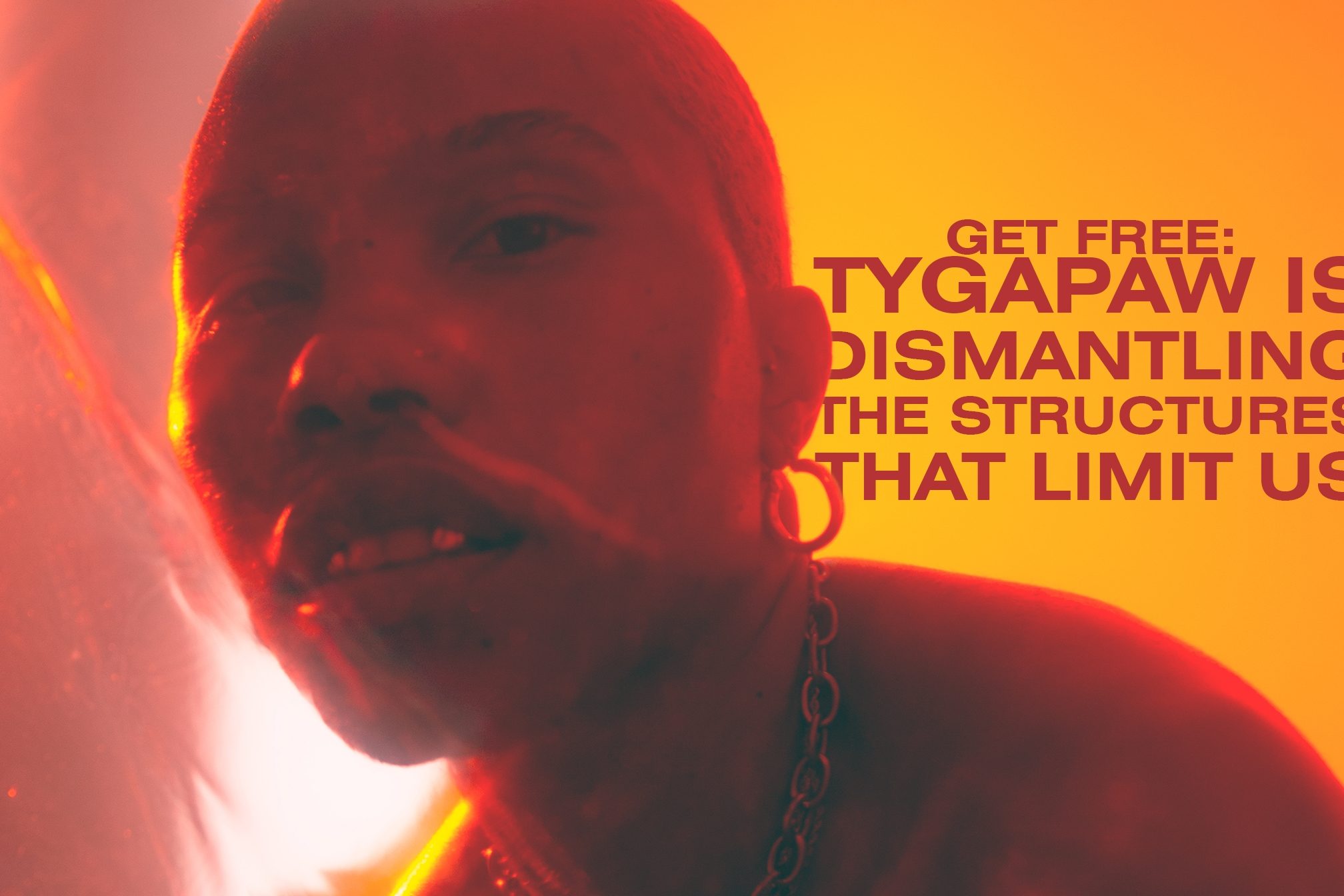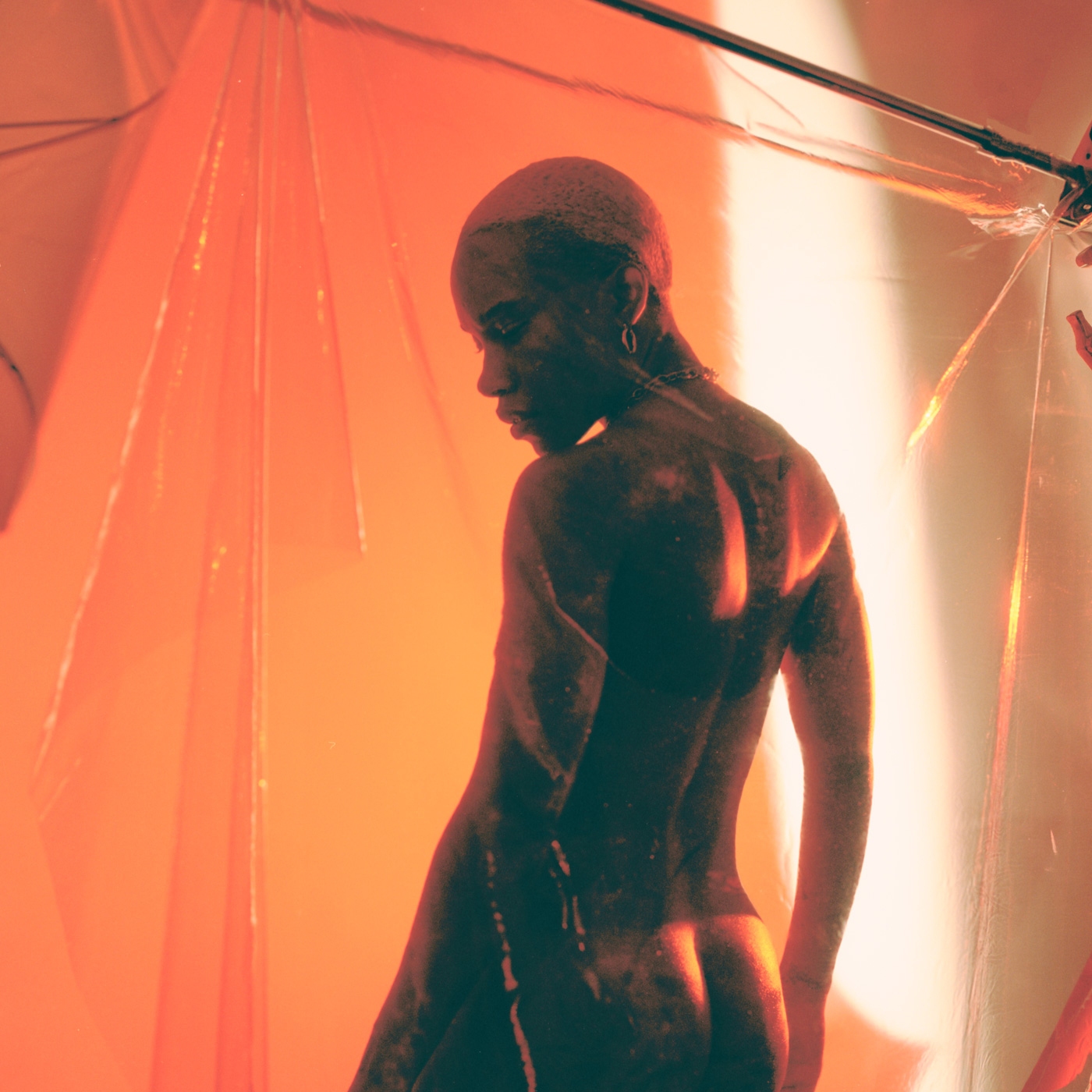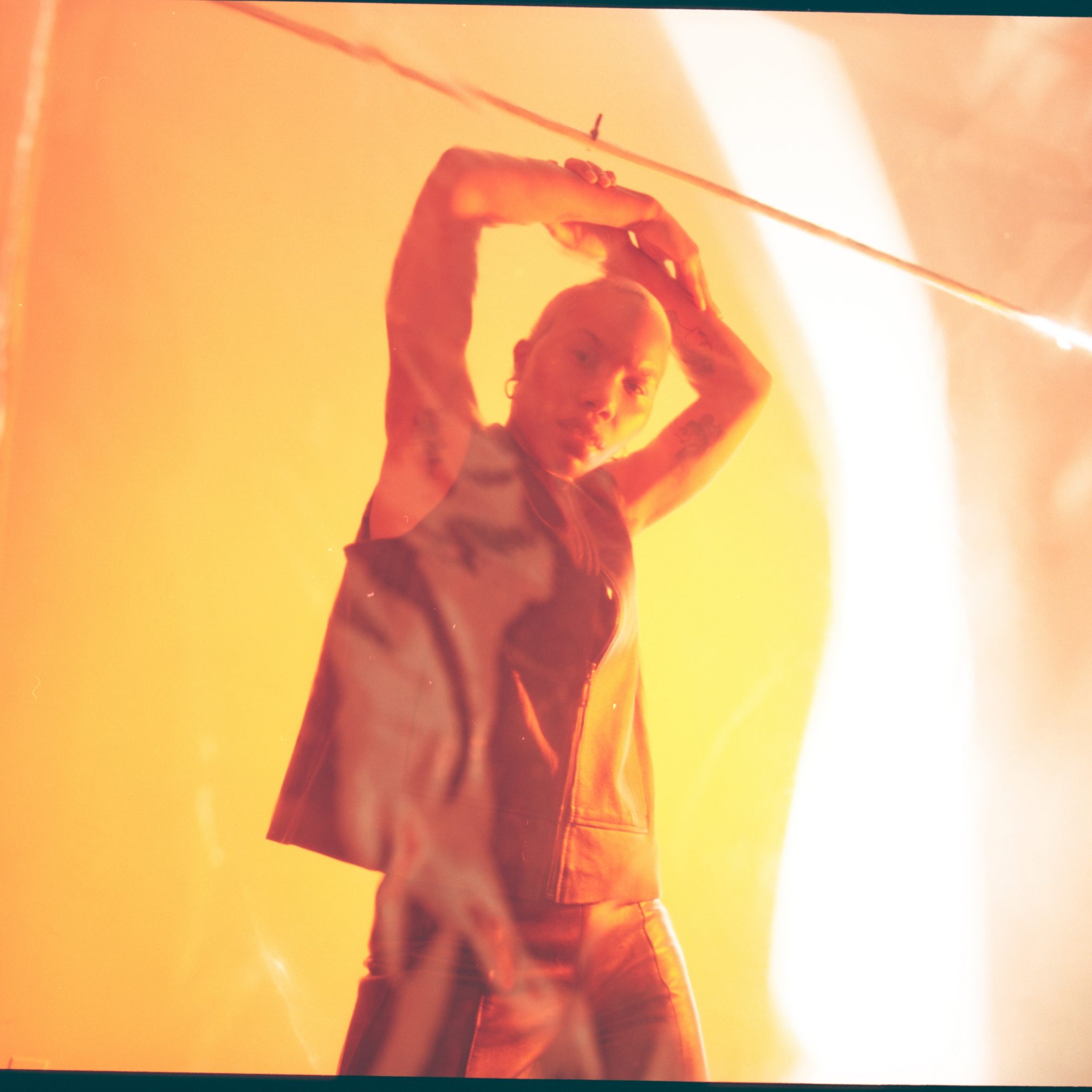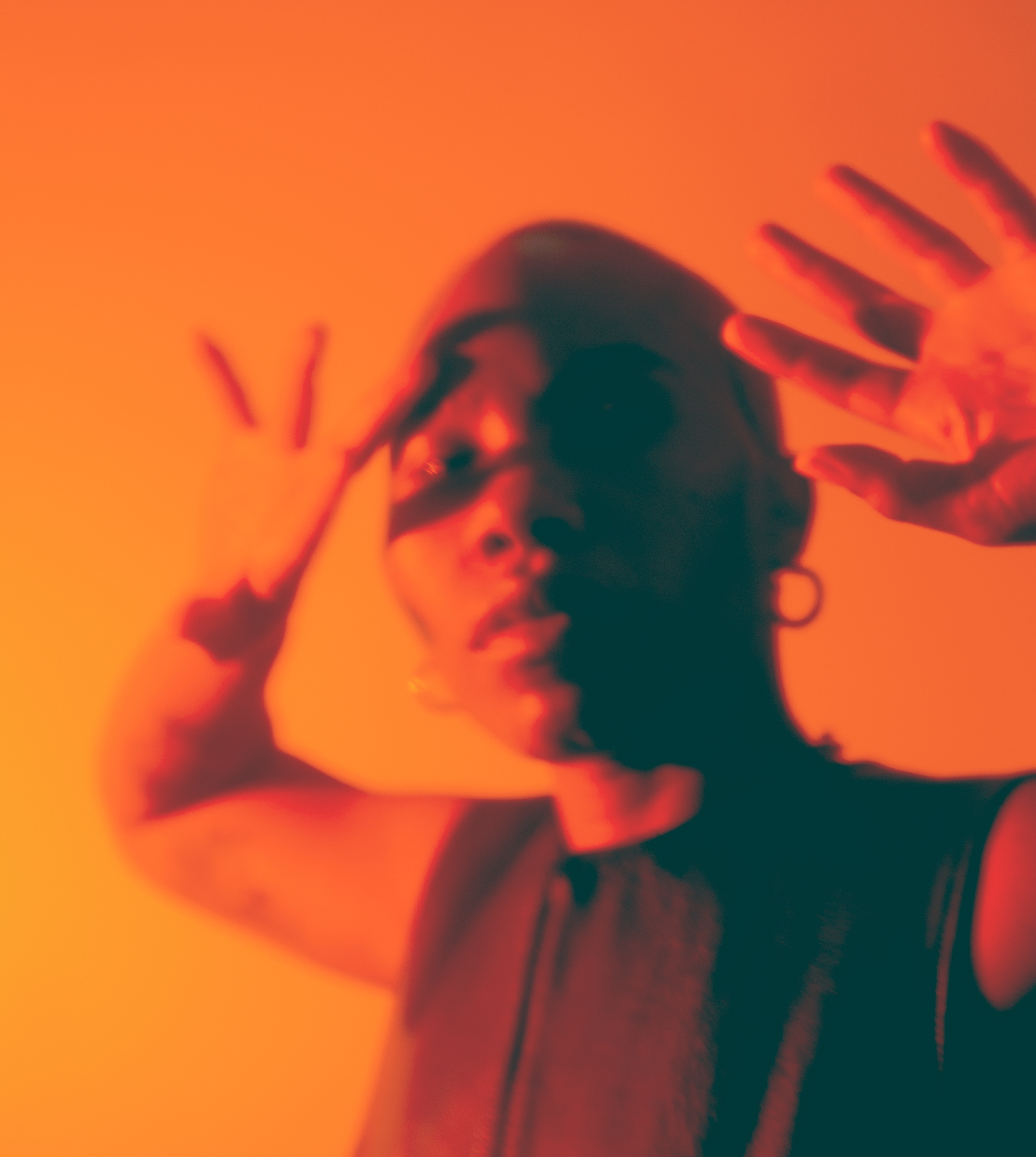 Features
Features
Get Free: Tygapaw is dismantling the structures that limit us
Jessica Kariisa hears how Tygapaw's new album is a rebuke to the obstacles of patriarchy, racism and queerphobia
On a late summer evening in 2019, Dion McKenzie stood outside the Brooklyn Museum, looked up to the sky and asked a simple question: “Why?” She had just finished DJing at the New York institution and in two weeks would be sharing a Moma PS1 Warm Up line-up with Chaos In The CBD and Pop Smoke. But this Saturday night she couldn’t call an Uber home. Her card had been declined. “I had no money in my bank account, and I just played Brooklyn Museum,” she recounted to me recently over Facetime, pausing to let the cosmic injustice sink in, “I was just like, universe, please make it make sense. Why am I here?”
The Jamaican-born artist, producer and DJ is disarmingly open. “2020?” she laughs, echoing a year that has become synonymous with loss and struggle, “2019 kicked my ass.” A few months before the Brooklyn Museum gig, Dion was wrapping up a European tour and filming a documentary on inequality within the music industry. While travelling through Frankfurt she was threatened with deportation and separated from her passport by an immigration officer. It wasn’t until she complied with his absurd request to withdraw all the money out of her bank account that he would let her transit. The trauma of the incident shadowed her to Berlin, where she was on tour. She fell ill, lost a lot of weight and felt weaker than she ever had. “I was like, oh God, is this going to be a biopic?” she remembers with a shake of her head.
Read this next: Dee Diggs is reclaiming house music
In the decade or so that Dion has been releasing music as Tygapaw and in the 18 years she’s lived in New York City, adversity has been in lockstep with success. As a Black queer female immigrant, few, if any, are more vulnerable to exploitation. So the question wasn’t how to get rid of it, but rather how to transcend: “I'm never going to quit music. This is my life, you know what I'm saying? But sometimes they put you through so much that you quit. I feel like ‘Get Free’ is my clap back.”

‘Get Free’, Dion’s debut album released in November 2020 with Mexican label N.A.A.F.I, comes off the heels of three EPs – the breezy club tunes of ‘Love Thyself’ (2017), and the emotionally charged compositions of ‘Handle With Care’ (2019) and ‘Ode To Black Trans Lives’ (2020). The first two projects mark distinct chapters in Dion’s path to self-acceptance and it’s not hard to see ‘Get Free’ as the final installment in a series. Shepherded by the captivating language of her collaborator, LA-based writer Mandy Harris Willams, ‘Get Free’ is a cinematic journey in techno-color. The album provides a roadmap to freeing one’s mind from the structures that limit us. The politics of this act for Black queer women evokes the work of Black feminist scholars like Audre Lorde, who in her 1978 poem A Litany for Survival reminds us that “we were never meant to survive.” ‘Get Free’ doesn’t bet on speculative futures, but much like Lorde’s insistence on self-care as self-preservation, the work is insistent that we break the chains today. “Some of us had to get free, some of us might,” Williams proclaims starkly on the album opener. The atmospheric tension and resolution in the chords on ‘In Their Fear They Plotted Her Destruction’ undergirds the urgency of Williams’ words while the driving, percussive layers build to near frenzy.
But achieving freedom, while it requires us to work through pain, is also cause to celebrate. Dion, who was partly inspired by the irrepressible Black joy of Detroit’s storied television program, The New Dance Show, uses her own voice to channel this pleasure. Back to back cuts ‘Magenta Riddim’ and ‘Facety’ tap into the stylings of Jamaican dancehall MCs with patois ad libs that are both playful and instructive. “Wah dem seh? Each one, teach one. And if yuh nah guh teach one. The blessings nah guh come,” she intones on the latter. The bouncy pads and hypnotic groove of the ballroom-indebted ‘Soon Come’ offers the kind of eyes-closed, hands up deliverance of an unforgettable night out, while the soaring melodies and bright tones of ‘Untitled Fantasy’ ushers us back into the tender promise of daylight. At 11 tracks, it’s the longest project Dion has put out but her intentionality is clear throughout. From pain and love to finally gratitude, the album traces a viable course for Black queer women to heal and ultimately, get free.

Dion was born and raised in Mandeville, Jamaica. “What most Jamaicans would call the country,” she adds with a smile. She connected with music early, falling in love with Whitney Houston as a child, but after her mother refused to sign her up for piano lessons she focused on visual art. Her musical horizons broadened when she got access to MTV through a massive cable satellite in the backyard. “It looked like we were trying to communicate with aliens,” she jokes. She found herself most drawn to the heavy sounds of bands like Nirvana and Korn as well as storytellers like Alanis Morrissette and No Doubt. The music offered a reprieve from the obstacles of patriarchy and bullying that colored her upbringing.
“I feel like my mother didn't want to have an AFAB child. I was abandoned as a baby, you know? So I had to find ways to self-soothe and be with myself.” Working through the neglect initially begat anger but these days she considers her past with a remarkable amount of compassion and care. “I'm realizing now that maybe I do want to be a bit more like [my mother]. As I get older, I start to understand the complexities of a Black woman. We're not really given a lot of space to be multidimensional. My mother is an incredibly brilliant woman. Even though there’s pain, understanding is the best thing that you can do for a Black woman, so I'm giving her that space.”
In 2002, Dion moved to New York City to attend Parsons School of Design. She soon fell in with the jazz kids and it wasn’t too long before she began experimenting with making music. Over the next few years she moved through several DIY scenes in the city, played in a band, started a rap duo and DJed before coming into her own as Tygapaw in her mid-twenties. The name is a play on Lion’s Paw, a hand greeting used among Rastafarians. She doesn’t identify with the religion, so out of respect and her love for the mammals she swapped out the Lion for Tyga. “They look incredibly powerful and not like an animal you want to mess with, but they also look cuddly,” she tells me.
Read this next: Welcome to Dyani's world of sound
I feel like the same could be said of Dion. Her athletic physique, which is on full display on ‘Get Free’’s striking album cover (shot by Avion Pearce), exudes so much strength it’s hard to not feel intimidated. But seconds into our chat, Dion’s warmth and humor immediately puts me at ease. “I remember buying a bike off of Craigslist because I couldn't afford a subway card and that was my form of transportation for a good three years. People think this body comes from fitness, it comes from survival!”

Dion’s original plans for her debut album were thwarted by the Covid-19 virus. She was planning on travelling to Jamaica and examining the theme of liberation through the island’s history of marronage, the free communities built by escaped slaves. Though her plans changed last minute, in a lot of ways it feels like the album as it stands was set in motion much earlier. After turning 30, Dion’s outlook began to shift towards a more radical self-love, which meant excavating a number of painful memories. Therapy and a timely reading of bell hook’s All About Love helped her realize that the violence and abuse she had normalized as a child was anything but normal. “The music started to shift once I invested in therapy because I started to learn that it's okay to feel this pain. You just have to work through it and not be afraid of it. The kindness starts with you – everybody is a dick around you, don't be a dick to yourself.”
This mental shift, coupled with the inspiring work of experimental artists like Nkisi and Dreamcrusher and a Youtube deep dive into the Black roots of electronic music, opened up new worlds for Dion. “Something clicked and I was just like, I'm gonna make what I wanna make.” That lack of inhibition is palpable on ‘Get Free’ and even came as a surprise to Dion. “I didn't know if I could do it until I did it. That's important, you know, that's the point. You don't know what your full abilities are until you apply yourself.”
These days, Dion is working on building up the label side of her party series Fake Accent. She’s also mentioned wanting to open up a venue and eventually will make that project on marronage, but she’s also happily basking in love: Love from the ones who have held her down over the past decade, the new fans she’s made and from her girlfriend, a Black Caribbean woman. This kind of affection gives her hope that even with so much uncertainty in the world and the ever-present threat of death, we might be able to find redemption: “I think [love] enters into your life and can help to shift things for you and ultimately, help to save you.”
'Get Free' is out now via NAAFI
Jesica Kariisa is a writer, editor and DJ. Check out her website here
Read this next: Get the best of Mixmag direct to your Facebook DMs

Loading...


